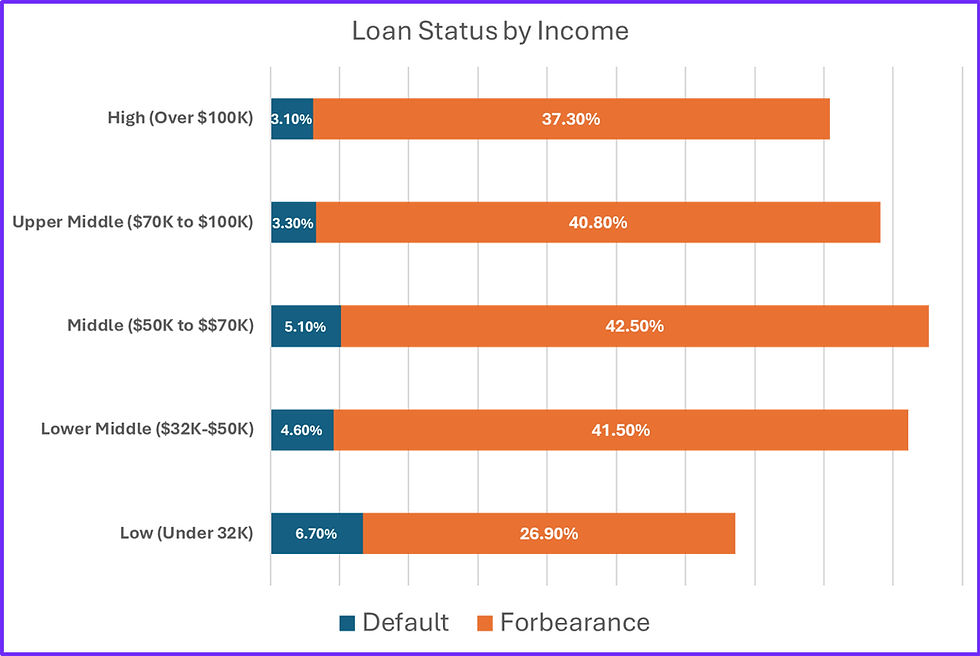Top Questions About Student Loan Discharge in Bankruptcy
- Dave Danielson

- Jul 14, 2025
- 3 min read
At Student Debt Solutions, we have been working with bankruptcy attorneys for a number of years, which gives us valuable insight into the most common questions clients ask about student loan discharge in bankruptcy. Below are some of those frequently asked questions—along with answers provided by experienced attorneys.
Q: Can I really discharge my student loans in bankruptcy?
Attorney Answer:
Yes—while it used to be rare, it’s now more possible than ever thanks to updated guidance from the Department of Justice and Department of Education. You must file a bankruptcy case and initiate a separate legal process called an adversary proceeding to pursue the discharge. We will need to demonstrate that repayment would cause you undue hardship.
Q: What is the new attestation process I’ve heard about?
Attorney Answer:
The attestation process is a standardized form introduced by the DOJ and DOE. It helps streamline the review of your financial situation to determine if a discharge is appropriate. It asks for information like income, expenses, family size, employment status, and efforts you’ve made to repay the loans. It has made the process faster and more transparent.
Q: What’s different under the new guidance?
Attorney Answer:
Before this change, borrowers had to go through a difficult and inconsistent court process where outcomes varied widely depending on the judge or jurisdiction. Now, borrowers complete a detailed attestation form, and the Department of Justice uses it to evaluate their financial situation against a set of clear, published standards. The goal is to eliminate unnecessary litigation and streamline decisions when borrowers show real hardship.
Q: What’s the success rate under the new process?
Attorney Answer:
Early data is very promising. Most borrowers who complete the attestation form and meet the hardship criteria are getting full or partial discharges. The streamlined process has also cut down the time and legal friction that made these cases so difficult in the past.
Q: How do I start this process?
Attorney Answer:
You’ll need to file a bankruptcy case—typically Chapter 7 or Chapter 13—and then open what’s called an adversary proceeding within that case, specifically targeting your student loans. This is where the undue hardship claim is reviewed. The new DOJ process will only apply if your loans are federal and held by the Department of Education.
Q: Does this work for private student loans too?
Attorney Answer:
Unfortunately, the new DOJ guidance only applies to federal student loans. However, some private student loans may still be challenged in bankruptcy under different legal theories, such as if they weren’t used for qualified education expenses. It’s best to consult an attorney to review your specific situation.
Q: I filed bankruptcy in the past. Can I still try to discharge my student loans now?
Attorney Answer:
If your bankruptcy case is still open or if you're eligible to reopen it, you may still have a window to file an adversary proceeding. We’ve seen some borrowers go back to court and get results under the new rules. Again, an experienced attorney can help you explore your options.
Q: What happens if only some of my loans are discharged?
Attorney Answer:
That’s possible. The court may discharge only part of your loans or only specific types (e.g., federal vs. private). It depends on your financial picture and the nature of each loan. Even a partial discharge can significantly reduce your burden.
Q: Will this affect my credit or taxes?
Attorney Answer:
Filing bankruptcy will impact your credit. However, discharged student loans do not create tax liability under current law (through 2025) due to a temporary tax exclusion. That may change in the future, but we’ll monitor that for you.
Q: Do I need to be in default to qualify?
Attorney Answer:
No. You do not need to be in default to pursue a student loan discharge. In fact, having been in a repayment plan or making good-faith attempts can help your case.
Q: Do I need an attorney?
Attorney Answer:
While it’s possible to file on your own, the process is complex, and we strongly recommend working with a bankruptcy attorney—especially one familiar with student loan discharge cases. If cost is a concern, Legal Aid organizations in your area may be able to help, and some attorneys offer payment plans or pro bono services.
Final Tip from Attorneys:
Bankruptcy isn’t for everyone, but if you’re in long-term financial distress and carrying federal student loan debt you can’t repay, it’s worth asking the question. The law—and the process—are more borrower-friendly than they’ve ever been.




